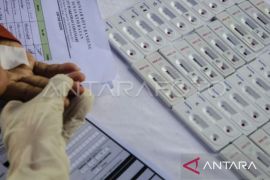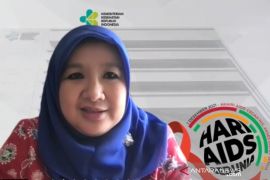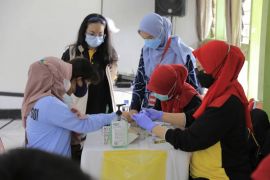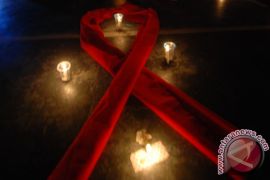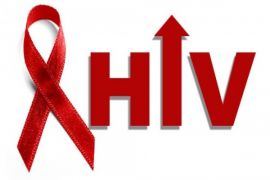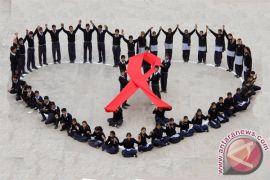"The best effort to prevent (transmission) is to reduce the amount of HIV virus in the mother's body as much as possible. Apart from that is by detecting HIV-infected mothers and then giving them antiretroviral (ARV) drugs or therapy," task force member Rizqi Amalia said at a health talk show event that was followed online on Thursday.
According to her, vertical transmission is the main cause of HIV transmission in children. The transmission can occur during three periods: pregnancy, childbirth, and postpartum or during breastfeeding.
"While (the baby is) in the womb, the mother's risk of transmitting HIV is around 5–10 percent. Then, during an unsafe delivery, the risk increases again by 10–15 percent. Then, after birth, breast milk can transmit it, adding the risk by 15–20 percent, depending on the duration of breastfeeding and whether the mother received therapy or not," she explained.
Related news: Govt strengthens HIV screening to prevent mother-to-child transmission
Amalia noted that if HIV is detected early, pregnant women would have more opportunities to reduce the level of the virus in their bodies to minimize transmission to children.
Pregnant women who are confirmed to be infected with HIV should be given ARV drugs or therapy. Likewise, the babies must get ARVs before they are three days old.
"Therefore, it is vital to know the status of the mother because, in several regions, the drugs cannot be made available instantly," she explained.
Through early detection and good prevention, mother-to-child HIV transmission can be suppressed to less than one percent, she opined.
"Meanwhile, if there is no prevention at all, from 10 mothers infected with HIV, maybe 40–50 percent (children) will be infected," she highlighted.
She further said that Indonesia must follow the steps taken by other countries, such as Thailand, which has received certification from the WHO for reducing vertical transmission to less than 1 percent. Meanwhile, in Indonesia, the projection of HIV vertical transmission for 2021–2022 is still 29–32 percent, she added.
Related news: Early HIV detection crucial for improving quality of life: expert
Related news: Religious figures, community network crucial to prevent HIV: Ministry
Translator: Suci Nurhaliza, Raka Adji
Editor: Suharto
Copyright © ANTARA 2022



